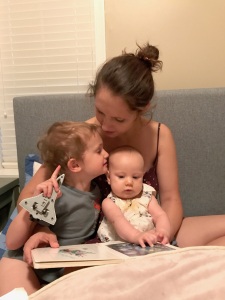I have some parent friends who make parenting look relatively effortless. And not in a, “my life is a curated series of Instagram stories but I’m actually hiding a mess in the corner you can’t see” kind of way. I’m talking effortless more in the, “we have bumps in the road and move forward productively” kind of way. These parents have incredibly funny conversations with their kids they can transcribe to social media to make us laugh with them. They laugh about how their kids always want to eat pasta, but you also sort of know their kids eat the asparagus, too. These parent friends are kind and empathetic when you’re struggling as well. I love these friends.
I have other parent friends who make parenting look not quite as effortless. They joke with me about what the tipping point in the day of switching from coffee to wine is. They have their meltdown stories to swap with you on a bad day. Generally, though, these friends tend to have incredibly useful pieces of advice to give and also seem to have their stuff together. These parent friends are also kind and empathetic and I love them, too.
Then in the parent world…there’s me.
Though I’ve never conducted a formal poll, I would place a good Vegas wager that none of my friends would place me in either the, “has her parenting thing together” or the “sort of, kind of, possibly has her parenting thing together” categories.
 I got pregnant with my daughter when my son was 1.5. As fate would be so kind to show us, this happened to be when the already near-impossible task of parenting inched much closer to the “impossible” category. This wasn’t because I was tired or sick. Things just started going…sideways. My son wasn’t speaking like he should have been, even allowing for a bit of a delay for “being a boy.” His toddler tantrums were getting worse and more intense than other kids’ his age. We started monitoring and waiting, thinking that one day he’d just start spurting out words like an avalanche and things would calm down.
I got pregnant with my daughter when my son was 1.5. As fate would be so kind to show us, this happened to be when the already near-impossible task of parenting inched much closer to the “impossible” category. This wasn’t because I was tired or sick. Things just started going…sideways. My son wasn’t speaking like he should have been, even allowing for a bit of a delay for “being a boy.” His toddler tantrums were getting worse and more intense than other kids’ his age. We started monitoring and waiting, thinking that one day he’d just start spurting out words like an avalanche and things would calm down.
Then we kept waiting.
And waiting.
Months went on. My son continued to struggle to say anything but a few words here and there. His tantrums continued to worsen. His fear of anyone who wasn’t either me or my husband was paralyzing. Hitting started. The screams were ear-piercing. There were days I almost forgot I was pregnant because my son took up so much of my time and mental energy.
We started him in speech therapy and enrolled him in a preschool two days a week, hoping the combination would help him socialize and talk more with peers and professionals.
Things didn’t get better. My belly was getting bigger and things just kept going more sideways. Hitting, yelling, screaming, tantrums were in abundance but there were so few real words from my son.
The hard part, of course, was that I thought I was doing all the things. I was setting firm, realistic boundaries while practicing kindness. I was being consistent. I was trying to make my son use words for things instead of just pointing at them. The things didn’t work.
It all kept getting worse.
His peers were having real conversations with adults and each other and yet we were elated when he used 3 words to tell us he wanted something instead of pointing or yelling (or, more often than not, just going to get it himself). His tantrums were so intense and long-lasting there were periods I wondered if something was seriously wrong. I had been so proud of raising a child who was independently motivated – he could find activities to play on his own and didn’t need me to entertain him 24 hours a day – but what if that independence and self-motivation was the exact reason he wasn’t talking? What if I was the reason our life was insane?
Mom guilt was at level one million percent.
I knew my son was smart – he could figure out any puzzle, lock, climbing structure, and yet he wouldn’t – couldn’t, rather – show it to anyone other than us.
I cried a lot.
I couldn’t imagine bringing another child into our life. My husband was working about 70-80 hours a week and was appropriately exhausted and unable to help the way he wanted. My world felt like it was collapsing and I had never felt so alone – both figuratively as a parent with a child struggling and literally with no other adult around the house.
 Whenever someone asked me how things were I felt like Han Solo in Star Wars after he had raided the detention area and the enemy command was calling over the radio asking for an update. In the scene he looks around at the smoking wreckage, frazzled, and hastily says, “Everything’s under control…uh..situation normal…we’re all fine here…how are you?!”
Whenever someone asked me how things were I felt like Han Solo in Star Wars after he had raided the detention area and the enemy command was calling over the radio asking for an update. In the scene he looks around at the smoking wreckage, frazzled, and hastily says, “Everything’s under control…uh..situation normal…we’re all fine here…how are you?!”
Nothing was normal.
Things were certainly not under control.
We weren’t all fine here.
How were you?
After six months at the preschool we came to the conclusion a Montessori environment wasn’t right for my son. While he was incredibly self-motivated, the classroom was too quiet and he retreated into his own world, never speaking. We chose a different play-based school that had availability starting in a few months and we were counting down the days to everything. Days until I gave birth. Days until we could switch schools. Days until my husband could go on paternity leave. Days we had survived since we last counted.
“Everything’s under control…situation normal.”
It’s not that there weren’t sunny days. It just seemed like our cloudy days always brought storms.
My daughter was born in late March as my son turned 2.5. My husband had an almost unheard of 6-week paternity leave. Much of the progress on my son’s speech stalled, but he never actually regressed. Heartbreakingly, though, he rejected me completely. He didn’t want to spend one-on-one time with me. He didn’t want to come home after being out with my husband. The screaming, hitting, crying, and all-out tantrums continued.
We switched my son to the new play-based school and he started to open up more. His speech still wasn’t where it needed to be, and his fear of adults other than basically my husband, me, and my in-laws was still almost paralyzing for him. Play therapy was helping the anxiety a little bit, but there still seemed to be a piece missing from the puzzle. The speech delay was a symptom of a bigger problem, we knew, but of what?
We kept trudging along. My son improved, slowly but surely. We felt more and more that his speech therapist wasn’t a good fit, but we also started to suspect that maybe he had some sort of sensory processing issues too. He couldn’t handle any “goop” on his hands, lights started being too bright for him, and if he was in a busy environment he could barely function and would just shut down entirely.
I should probably mention that having a newborn in the mix to care for made this trudging along that much harder. I felt like I could never give any of my children the attention they deserved or needed. Mom guilt was now at level two million percent.
“We’re all fine here, how are you?”
My son was struggling. There was progress, yes, but he was struggling. He would feel something, the words wouldn’t come, he would get frustrated, and then melt down. I just wanted to make it better. I just wanted the words to come for him, so I could understand what would make his world a better place.
The words wouldn’t come.
I read books about spirited children, late talkers, and attachment philosophy to try and get a better grasp on the situation. There were more sunny days, but still lots of storms.
After my son turned 3 we scheduled an appointment with a neuropsychologist who also does something called “brain mapping,” where the doctor performs the typical cognitive tests, but also goes one step further and actually measures brain wave activity between various regions of the brain, seeing if any areas of the brain are under-or-over-performing by more than a few standard deviations. This way if children won’t perform up to their abilities in the cognitive assessments (*raises hand*), it can help paint a better picture of what’s actually happening inside the brain.
The process of brain mapping involved sitting my son down in a chair, putting a cap with electrodes on his head, and having him watch a movie of his choice (Star Wars) for 15 minutes. There was nothing invasive, and it was probably the best part of our day that day. He dazzled the technician with this ability to tell me every starship and character in the movie.
My husband and I went in for the results about a week later. As we knew would be the case, my son was only willing to perform about 30% of the tasks assigned in the cognitive tasks (note that he said willing, it was very clear he was able to do them if I happened to be in the room or he liked the task). It was immediately evident brain power was not the problem. The neuropsychologist also confirmed he wasn’t autistic; the “problem areas” in his brain were completely well-defined, and autism shows up completely differently.
There were, however, three areas of my son’s brain that were performing abnormally by a few standard deviations.
First: expressive language. The neuropsychologist explained his expressive language area like this: imagine you’re trying to jump up, but have your knees locked rigid. The brain waves are so tight and at such a high frequency there was hardly any flexibility for him to talk. However, his receptive language brain power was absolutely fine. My son understood everything we said, but just couldn’t get any of his words out. I imagined what it would be like to have my jaw wired shut as I was trying to communicate, but nobody knew why I couldn’t talk. My heart broke for my son all over again.
The second area of concern was emotional regulation. Three-year-olds are not exactly known for their emotional regulation skills (and neither are most adults these days), but my son’s lack of emotional regulation went well beyond that of a typical three-year-old. “If you were to assemble 50 parents of 3-year-olds in a room together and ask them who was the most tired,” the neuropsychologist said, “everyone would raise their hands. You guys would be the only ones telling the truth.” Ah, so that wasn’t just in my head.
Finally, the third brain area we talked about was sensory processing. While my son was in speech therapy for speech and play therapy for emotional regulation (we had just been calling it “anxiety” to that point), this was the piece we hadn’t been addressing. Essentially, my son’s experiences to certain “sensory inputs” (touch, sight, sound, etc.) were amplified compared to someone with neurotypical brain patterns. Where we might see a light in the house as maybe a little bright, it would be like shining a spotlight in my son’s eyes. Where there might be a design pattern on the front of his shirt sewn in and we think it’s a little bit scratchy, that would feel like sandpaper scratching the surface of his skin off. He experienced the world at volume eleven. No wonder he was overloaded.
It’s a tough combination. Once one of the areas starts going really haywire (for instance: too much sensory input, too much frustration, or needing to get words out that won’t come), the other two get drawn in and overreact as well.
If my son experiences something that overloads certain senses (say, perhaps, shaving cream on his hands), it puts his sensory processing area of his brain into overdrive, which then pulls in the emotional regulation, and then shuts down any expressive language. This means that any ability to calm down is out the window, as well as any ability to express the words to tell us what is wrong. If he’s frustrated and his emotional regulation is overworked, he becomes more sensitive to sensory inputs, and then his expressive language piece shuts down, too. He can’t actually tell us what’s wrong, which then frustrates him more, which heightens the emotional regulation piece…and, well, you can see how this can spiral.
The neuropsychologist recommended keeping the course with speech therapy, putting him in school as much as possible because he was more comfortable speaking with peers and the more speech he can practice the more those brain wave patterns would “loosen up”, keeping with the play therapy, and adding in occupational therapy to help with the sensory processing.
I probably should have felt dismayed, but instead I felt…better. I felt relieved.
My son’s brain was literally wired to take longer to talk than his peers. His brain was literally wired to throw more extreme temper tantrums. His brain was literally wired not to be able to handle different sensations on his hands or feet. I didn’t do this to him. I wasn’t wrong in thinking his reactions were more intense than other kids’ his age. Maybe I wasn’t even the worst parent in the world.
(Maybe.)
I felt like I could finally tell people I trusted the situation wasn’t under control and was most definitely not normal.
We found a new therapy clinic where he can do speech and occupational therapy together, back-to-back, with an integrated team approach between the therapists. The clinic has an enormous sensory gym (complete with ball pit!) and his therapists quickly became his favorite people in the entire world. What I came to understand that while his wiring might have been a bit different, it could be changed. These wires could be reconnected with the help of therapy.
This isn’t to say things were immediately easy. For a while I was taking my son to 3 hours of therapy a week, not including travel time. When you added in my personal therapy as a remnant of my postpartum depression I was probably logging in around 7+ hours a week dedicated to therapies alone.
It was a lot. But, here’s the kicker: he started improving.
Things started getting under control. The situation actually became more normal.
It’s been about six months since we took my son to see the neuropsychologist (two years since we started down this long, patchworked road). His speech has started exploding recently, and his therapists are amazed at the improvements he makes weekly. His play therapist has said that he’s been doing so well we can go to every other week instead of every week. He talks to us, he answers questions, and, as a bonus, it turns out he’s actually really funny. When he laughs, he doesn’t ever just giggle, he laughs with his entire soul. When he hugs, he doesn’t give a light tap, he runs up as hard as he can, and squeezes you as if to make sure you know just how much he loves you. He’s still spirited, but his spirit is being put into his sense of self instead of lashing out at us (well, more often, at least). We’re learning how to set him up for success, and which situations will simply overwhelm him and are nonstarters.
He’s blossoming on the outside to the boy I knew was trying to get out from the inside.
I have no idea how much longer we’ll need to take him to therapies, or if this is all something he would have grown out of eventually on his own. I don’t think there will ever be a way to know those things.
I do know, though, how truly and completely alone and confused I felt over the past two years. How I didn’t know if there were other parents trying to figure out why their child was the only one screaming because they didn’t want to get off the train, even though they were going to go get ice cream. How I didn’t know if there were other parents who wanted to help their child if only their child could tell them what was wrong. I didn’t know if there were other parents who were watching their child’s tantrums asking themselves if this was normal, or if they were just the worst parents in the world. How I didn’t know if there were other parents whose only wish was just one normal day. I didn’t know.
It took almost two years to figure out where all the puzzle pieces were, let alone how to put them together into a plan to help my son. But I do want other parents to know this: if you’re standing in a pile of smoldering wreckage desperately telling everyone that everything’s under control, and insisting the situation is normal to everyone while you know it’s not, there are others in your shoes. There are others willing to listen. And, more than likely, there are others willing to help.
As a parent everything will never truly be under control. The situation certainly will never be normal. But maybe we’ll all be fine here.
How are you?















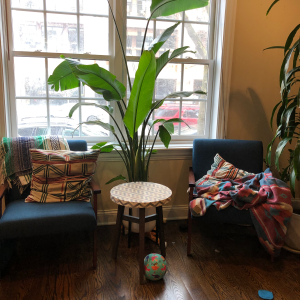

 I got pregnant with my daughter when my son was 1.5. As fate would be
I got pregnant with my daughter when my son was 1.5. As fate would be  Whenever someone asked me how things were I felt like Han Solo in
Whenever someone asked me how things were I felt like Han Solo in 
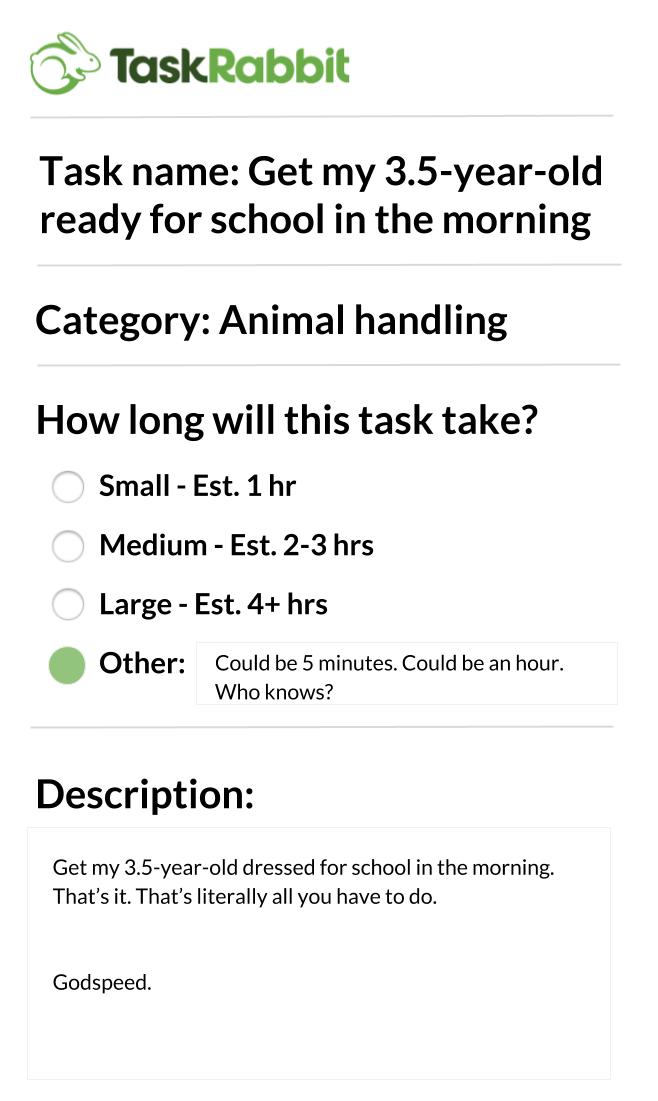
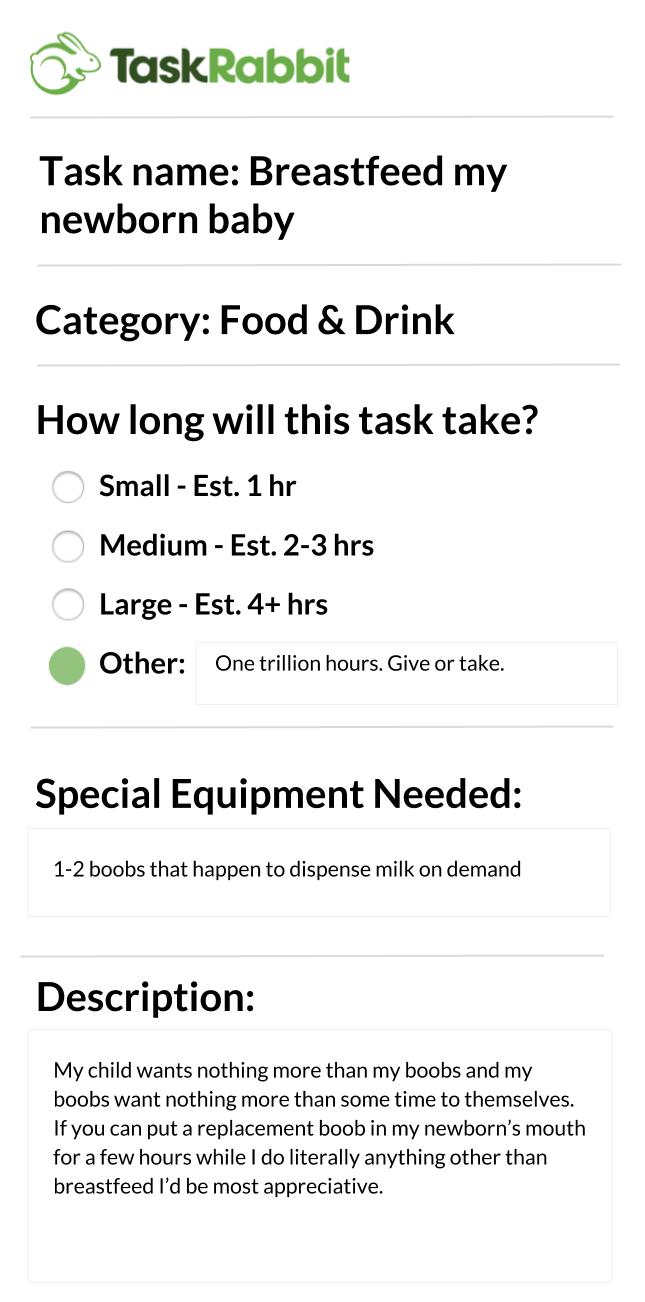
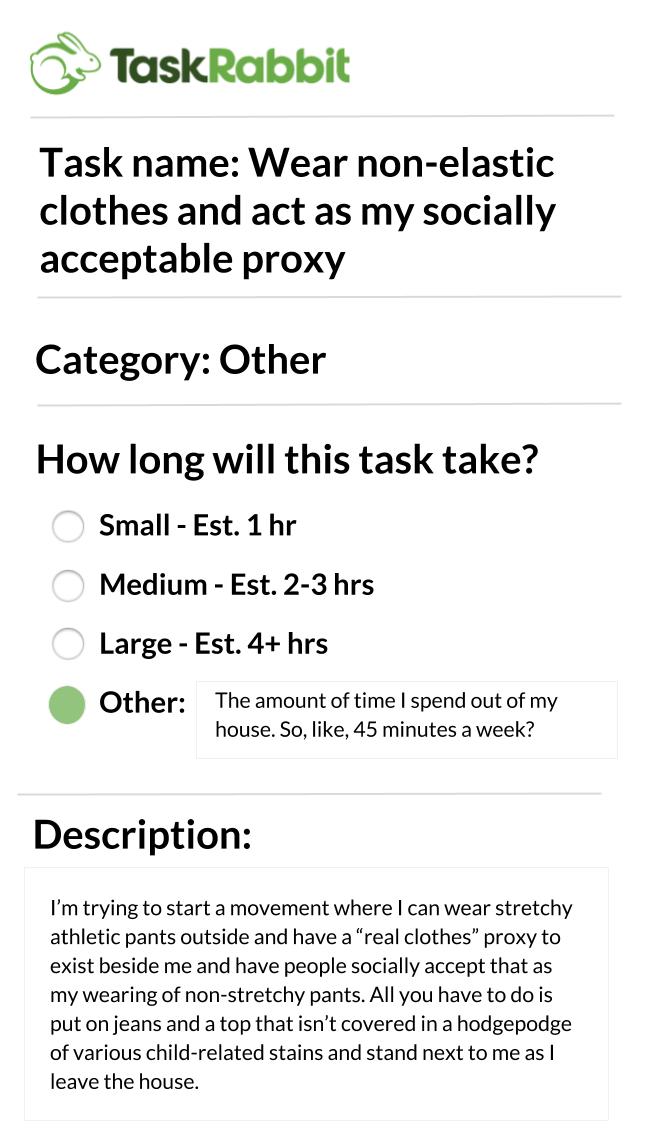

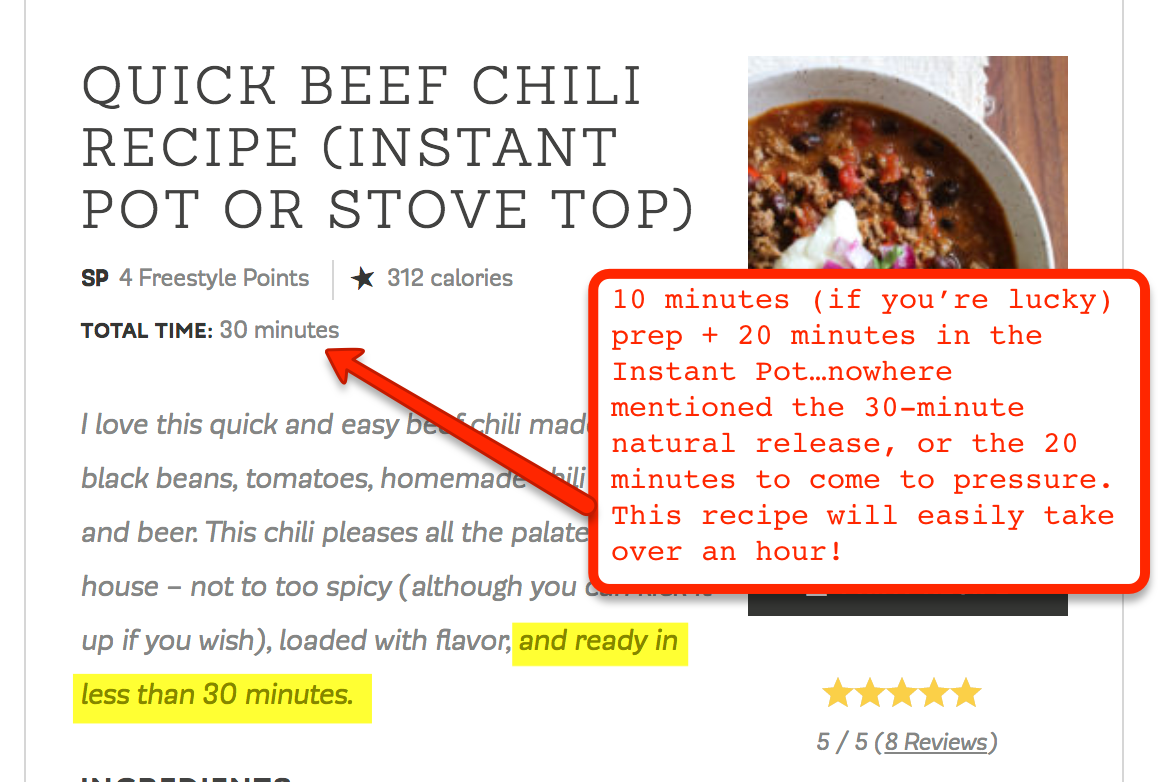

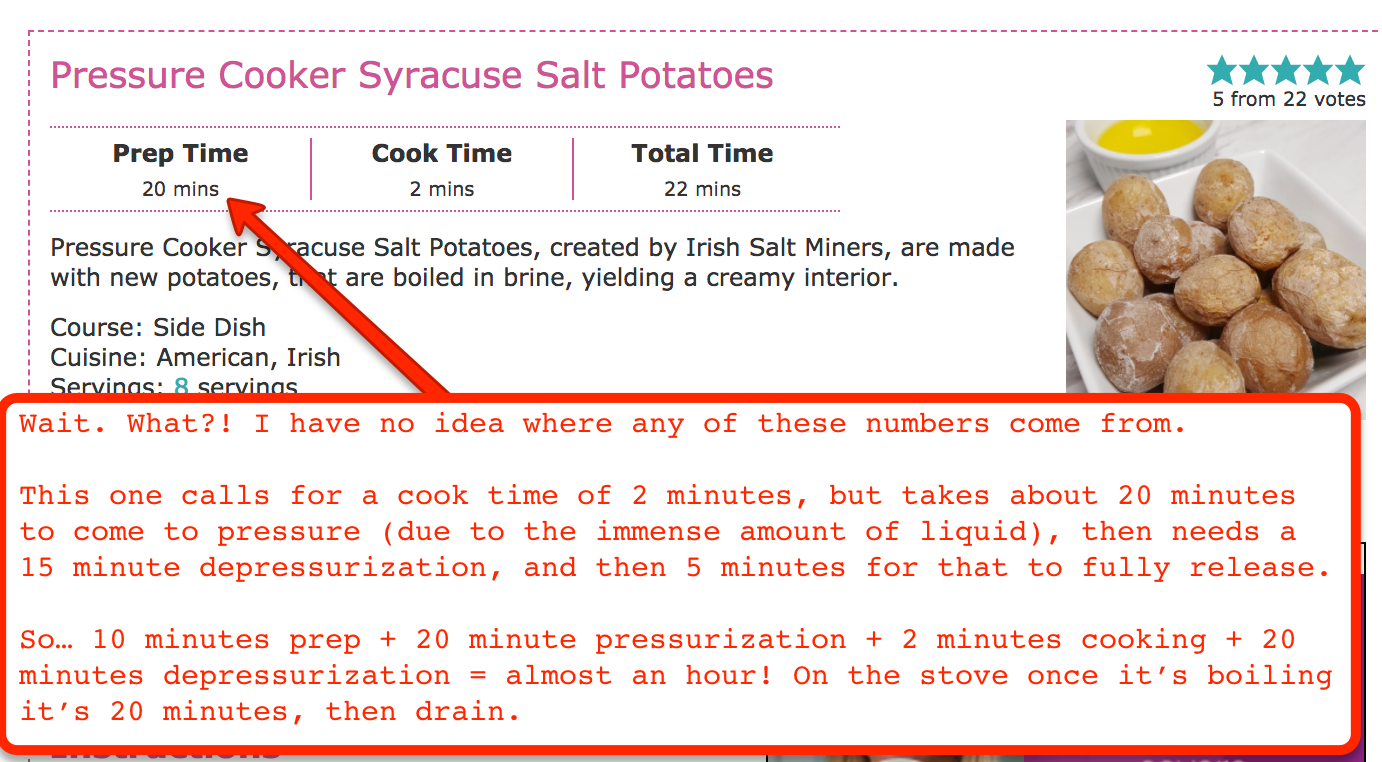
 Do any of these sound like your child? Well then, the problem isn’t that your children are human beings, the problem is apparently rather their parents speak English. Simply put: you parent like an American.
Do any of these sound like your child? Well then, the problem isn’t that your children are human beings, the problem is apparently rather their parents speak English. Simply put: you parent like an American. 
